
Lawyers
 المؤلف:
L.A Hill
المؤلف:
L.A Hill
 المصدر:
Advanced steps to understanding
المصدر:
Advanced steps to understanding
 الجزء والصفحة:
42-1
الجزء والصفحة:
42-1
 7/9/2022
7/9/2022
 1655
1655
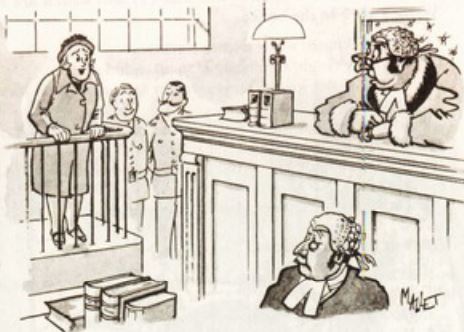
While Mrs. Edwards was in town one Saturday, she saw a crash in an avenue: two cars ran into each other. The drivers got out, and an argument arose between them, but then a policeman arrived. He asked the drivers what had happened, and then he turned to the crowd which had collected round and said, 'Did anyone see the accident?' Several people said they had, and Mrs. Edwards was one of them.
A week later she was asked whether she was willing to be a witness in a court case concerning the accident, and she said she was; and a month later, a lawyer was questioning her in court. She began everything with, I think that ...,' until the lawyer got angry and said, 'You're not here to say what you think: you're here to say what you know.'
I'm sorry,' objected Mrs. Edwards, but I'm not a lawyer, so I can't say things without thinking.
A Which of these sentences are true (T) and which are false (F)? Write T or F in the boxes.
- Mrs. Edwards saw a car crash into a tree, and two other cars run into each other.
- She told a policeman that she had seen the crash.
- She refused to go to court to be a witness.
- The lawyer did not want to give Mrs. Edwards time to think before she answered his questions.
- The lawyer meant that he wanted Mrs. Edwards to give facts, not opinions.
- Mrs Edwards was suggesting that lawyers say things without thinking.
B Answer these questions.
- What did Mrs. Edwards see on Saturday?
- What did the policeman ask the crowd?
- Who answered?
- What did Mrs. Edwards agree to do a week later?
- What happened a month later?
- How did she answer the lawyer's questions?
- What did he say to Mrs. Edwards?
- What did Mrs. Edwards answer?
C Put the right sentences under the right pictures.
1- A few weeks later she was a witness in a court case.
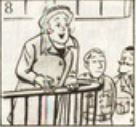
2- A policeman came and questioned the drivers.
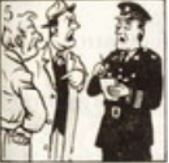
3- Mrs. Edwards said she would be one.
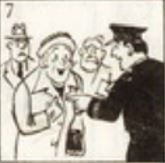
4- Mrs. Edwards was walking along an avenue.
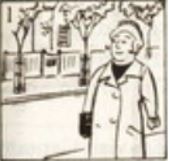
5- One car was following another.
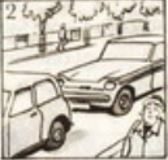
6- The drivers got out and had an argument.
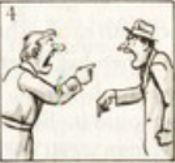
7- Then he asked for witnesses.

8- The second car hit the first.
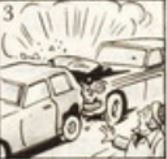
 الاكثر قراءة في Advanced
الاكثر قراءة في Advanced
 اخر الاخبار
اخر الاخبار
اخبار العتبة العباسية المقدسة


